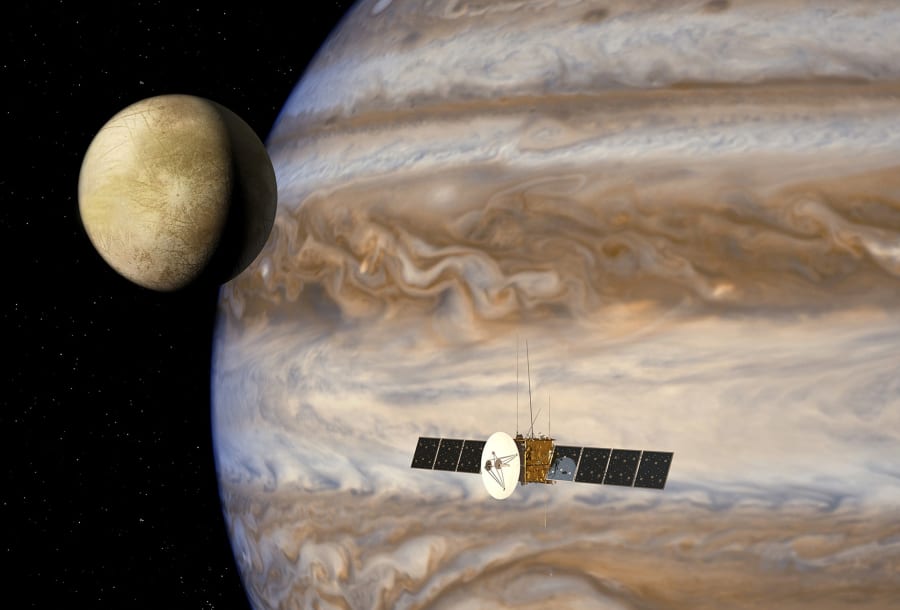Israeli space mission sets sights on Jupiter’s moon Europa

The Israel Aerospace Industries and researchers at the Weizmann Institute of Science are jointly seeking to send an Israeli space mission to search for potential life on Europa, which is one of the Planet Jupiter’s moons.
Just days before an Iranian missile struck the Weizmann Institute near Tel Aviv, Israel’s space community gathered there to discuss the future Israeli space mission, currently dubbed Eureka.
Professor Yohai Kaspi, a senior member at the Department of Earth and Planetary Sciences at the Weizmann Institute of Science, heads the institute’s involvement in the project. Kaspi admitted that Israel’s space industry is constrained by limited budgets.
“We can’t compete with the scale and budgets of the major space agencies, but a focused mission with a single instrument and a lot of trade-offs is something a small country can pull off,” Kaspi explained.
“In a way, we’re piggybacking on the big agencies. We’ll arrive after JUICE and Europa Clipper have already mapped the surface thoroughly. If we’re the first to follow them, we’ll have the best chance of succeeding.”
The Israeli space mission is still in its early stages and faces challenges in securing sufficient funding and international partners. Nonetheless, researchers and technicians remain optimistic that the project is achievable, even on a modest budget.
While Europa is the smallest of Jupiter’s four large moons, there are research indications that it could potentially contain life. Researchers have assessed that the moon likely contains liquid water beneath its icy surface. The rationale is therefore that the presence of water increases the prospects of finding potential life forms.
The European Space Agency and NASA have dispatched two separate spacecraft that are expected to reach the Jupiter moon in the early 2030s. However, neither the American nor the European missions are reportedly specifically looking for signs of life. The far smaller Israeli space mission, therefore, hopes to fill this scientific gap with a low-cost small spacecraft.
In June 2021, Israel and the United Arab Emirates signed a historic deal concerning cooperation on space mission and moon landing.
"If we combine the capabilities of the Israeli side and the Emirati side, we can carry out a very interesting and successful mission,” said Shimon Sarid, CEO of SpaceIL, the Israeli private space company that launched the small spacecraft Beresheet 1 to the moon in April 2019. The spacecraft ultimately crashed on landing.
SpaceIL Founder and Chairman Morris Kahn welcomed the space cooperation with the Emirati government.
“Over the past few months, we have forged a strong relationship with senior UAE officials who seek to establish a deep relationship based on shared values of education, technology and inspiration for the younger generations of the two peoples,” Kahn explained.
“We are proud to be the first project to pave the way for further historic moves,” he added.
In February 2023, SpaceIL signed a cooperation agreement with the large German Aerospace Center (DLR).
“We are honored to cooperate with DLR and use their software during our landing processes for the Beresheet 2 mission,” Sarid stated, adding that they are “thrilled to work together to perform successful lunar landings on both sides of the moon in our next challenging lunar mission.”

The All Israel News Staff is a team of journalists in Israel.
You might also like to read this:















